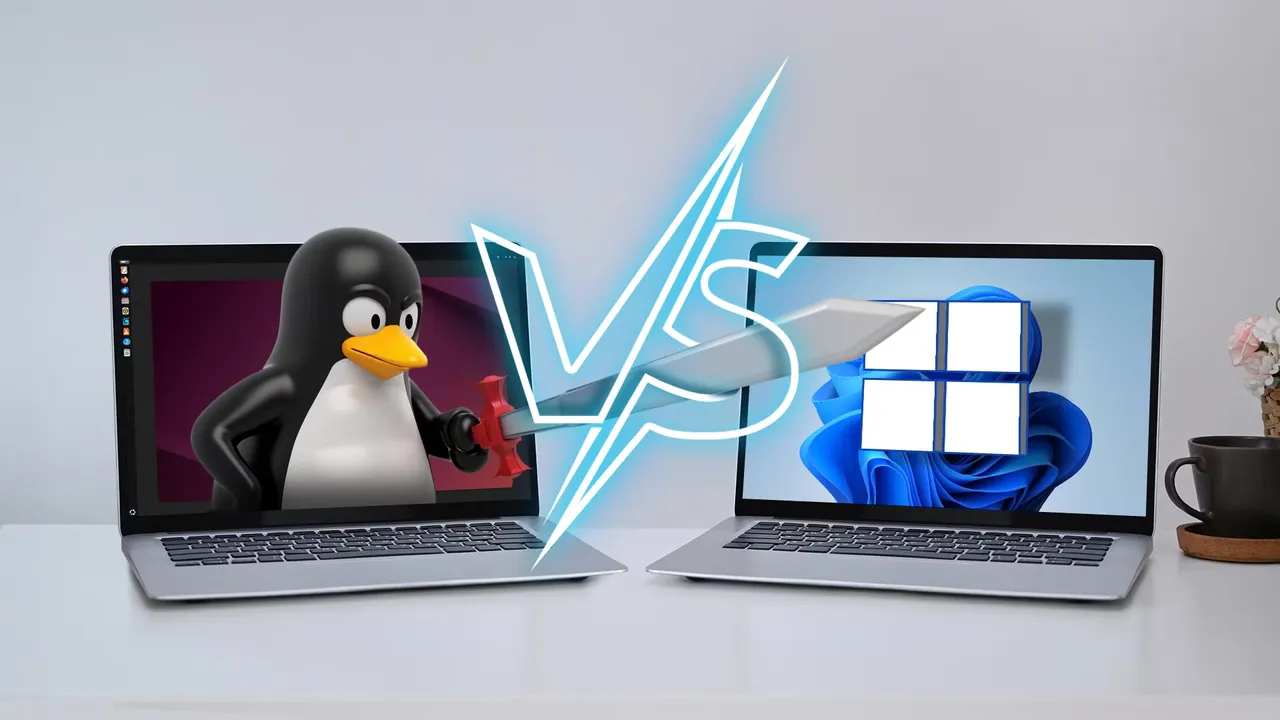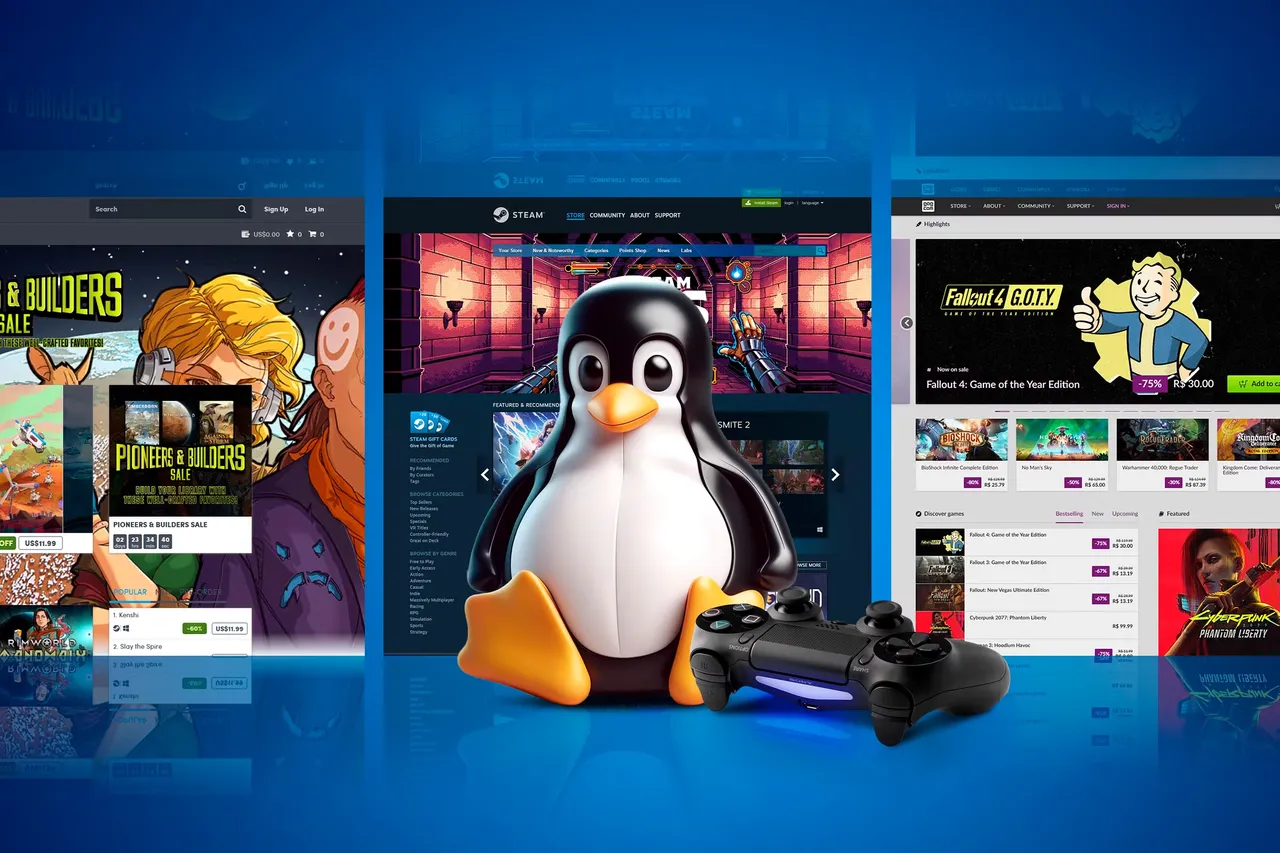Spanish
Linux al alza: ¿Será este por fin el año de Linux en el escritorio?
"El año de Linux en el escritorio" es un clásico chiste entre los que usamos Linux, pero sabemos que durante muchos años el mundo de los sistemas operativos ha estado dominado por un solo nombre: Microsoft Windows.
 2025 el año de Linux en el escritorio
2025 el año de Linux en el escritorio
Pero, en los últimos días, algunas cifras sugieren que un cambio, lento (muy, muy, muy lento) pero constante. Así es, según datos recientes, Linux ha superado la barrera del 4% de cuota de mercado a nivel global, un hito que, aunque pueda parecer modesto y hasta insignificante, representa una tendencia de crecimiento acelerado y un posible cambio de tendencia.
El artículo de Computer Hoy, titulado "Linux rompe una barrera que parecía imposible: es oficial, la gente está abandonando Windows", se hace eco de este fenómeno y explora las razones detrás de esta migración por parte de los usuarios, y no se trata de un "éxodo masivo", pero sí de un goteo incesante de personas que encuentran en Linux una alternativa sólida, segura y, sobre todo, que no te obliga a comprar un equipo nuevo para seguir usando las herramientas actuales.

¿Por qué ahora?
Una de las razones principales que se mencionan en el análisis de Computer Hoy es el descontento con las políticas de Microsoft. La imposición de requisitos de hardware estrictos para Windows 11 ha dejado a millones de computadoras que dicho sea de paso son perfectamente funcionales, sin la posibilidad de mantenerse actualizadas, y obligando a sus dueños a elegir entre quedarse con un sistema operativo obsoleto y abandonado o buscar otras opciones, y es justo aquí donde Linux brilla, ofreciendo distribuciones modernas y ligeras que reviven máquinas que de otro modo serían desechadas como basura, o peor aún, dejan fuera a miles de personas que no tiene la oportunidad de solo salir a comprar un equipo nuevo, como si de comprar una galleta se tratara.
Otro factor clave es la madurez de Linux, muy lejos quedaron los días en que usar Linux requería conocimientos técnicos muy avanzados, hoy en día, distribuciones como Linux Mint, Ubuntu o Fedora (distribución que yo personalmente uso) ofrecen una experiencia de usuario sencilla, bonita, y fácil de usar, a la par de Windows o macOS, sin mencionar que claro el mundo de los videojuegos ha mostrado su potencial con herramientas como Proton de Valve, que permiten ejecutar una cantidad masiva de juegos de Windows en Linux sin muchas complicaciones, y no hablamos de una integración acartonada o tosca, sino de niveles casi nativos.

¿Un Futuro Abierto?
Si bien Windows sigue siendo el rey indiscutible con más del 70% del mercado, la tendencia es clara. El crecimiento de Linux, que ha pasado del 3% al 4% (5% si somos más metódicos) en menos de un año, es una señal de que la comunidad de código abierto ha construido un sistema operativo que ya no es solo para programadores, nerds y entusiastas de la tecnología, Linux es para todos.
Yo concuerdo con el artículo de Computer Hoy, ya que no se trata de predecir el "final de Windows", sino de reconocer que el panorama está cambiando. Los usuarios ahora tienen más opciones que nunca y, y están eligiendo la libertad, la seguridad y la flexibilidad que ofrece Linux, quizás, la verdadera victoria para el sistema del pingüino no sea destronar al gigante, sino haberse consolidado como una alternativa real y competente para millones de personas en todo el mundo.
English
Linux on the rise: Will this finally be the year of Linux on the desktop?
"The Year of Linux on the Desktop" is a classic joke among those of us who use Linux, but we know that for many years the world of operating systems has been dominated by a single name: Microsoft Windows.
But, in recent days, some figures suggest a slow (very, very, very slow) but steady change. That's right, according to recent data, Linux has surpassed the 4% market share barrier globally, a milestone that, while it may seem modest and even insignificant, represents a trend of accelerated growth and a potential change in direction.
The Computer Hoy article, titled "Linux breaks a barrier that seemed impossible: it's official, people are abandoning Windows" (in Spanish), echoes this phenomenon and explores the reasons behind this migration by users. It's not a "mass exodus," but rather a steady stream of people finding in Linux a solid, secure alternative that, above all, doesn't force them to buy a new computer to continue using their current tools.
Why now?
One of the main reasons mentioned in the Computer Hoy analysis is dissatisfaction with Microsoft's policies. The imposition of strict hardware requirements for Windows 11 has left millions of computers, which are, incidentally, perfectly functional, unable to stay up-to-date, forcing their owners to choose between sticking with an outdated, abandoned operating system or looking for other options. This is precisely where Linux shines, offering modern, lightweight distributions that revive machines that would otherwise be discarded as trash, or worse, leaving out thousands of people who don't have the opportunity to simply go out and buy a new computer, as if it were a cookie.
Another key factor is the maturity of Linux. Long gone are the days when using Linux required highly advanced technical knowledge. Today, distributions like Linux Mint, Ubuntu, or Fedora (the distribution I personally use) offer a simple, beautiful, and easy-to-use user experience, on par with Windows or macOS. Not to mention, of course, the gaming world has shown its potential with tools like Valve's Proton, which allows a massive number of Windows games to run on Linux without much hassle. We're not talking about clumsy or clumsy integration, but rather near-native levels.
An Open Future?
While Windows remains the undisputed king with over 70% of the market, the trend is clear. Linux's growth, which has gone from 3% to 4% (5% if we're more methodical) in less than a year, is a sign that the open source community has built an operating system that is no longer just for programmers, nerds, and tech enthusiasts; Linux is for everyone. I agree with the Computer Hoy article, as it's not about predicting the "end of Windows," but rather recognizing that the landscape is changing. Users now have more options than ever, and they're choosing the freedom, security, and flexibility that Linux offers. Perhaps the true victory for the penguin system isn't dethroning the giant, but rather establishing itself as a real and competent alternative for millions of people around the world.
| Hola soy ONeZetty | |
|---|---|
 | Me gusta tomar Fotos a las Flores, soy Nerd, Geek, Bitcoiner, Linuxero, Huérfano, ex-Galletoso, Diabético, Esposo de Maggie, Nihilista, Steam Deck Gamer y 100% Deslactosado. |